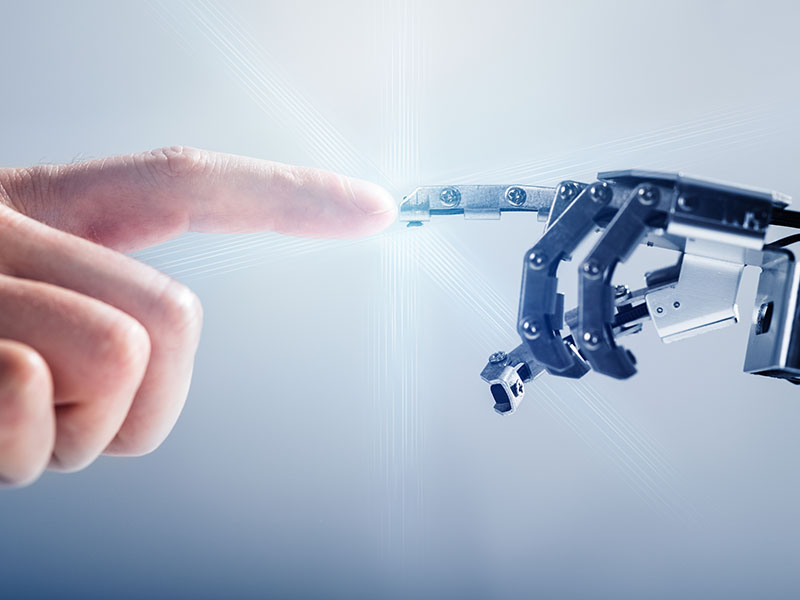The Fourth Industrial Revolution, also known as Industry 4.0, is radically transforming the world. Now that we are well into the Fourth Industrial Revolution, it’s critical that we discuss how the wire and cable industry is served by these new innovations.
With this Editorial Feature on Industry 4.0, Wire & Cable India interacted with the key industry players to glean insights on the indispensable role of Industry 4.0 in the wire & cable industry, new product developments, challenges and opportunities. Also, they present their outlook on the role of automation and the ways in which technological innovations are integrated in the production process.

The modern global economy is at the threshold of the new industrial revolution – the Fourth Industrial Revolution. It is a new sphere of industry, which started as a result of widespread emergence and use of new technologies – digital technologies and internet technologies enabling the development of fully automatised production processes. The technologies that are emerging today will soon be shaping the world tomorrow – with creating meaningful impacts to economies and to society at large.
Understanding Industry 4.0
The term “Industry 4.0” was initially coined by the German government which describes and encapsulates a set of technological changes in manufacturing. It is closely related with the concepts of – Internet of Things (IoT), Cyber Physical System (CPS), Information and Communications Technology (ICT), Enterprise Architecture (EA), and Enterprise Integration (EI).
Further, this is regarded as a new industrial stage in which several emerging technologies are converging to provide digital solutions. This transformation is marked by full automation and digitisation processes, and the use of electronics and information technologies in manufacturing and services.
Lean Production Systems for the Wire & Cable Industry
Smart manufacturing together with Industry 4.0 is emerging as the next step towards calibrating manufacturing for the future.
In the report titled, “The Fourth Industrial Revolution”, presented at the World Economic Forum, it is stated that Industry 4.0 includes business processes in the industry that envisage organisation of global production networks on the basis of new information and communication technologies.
As we are in the midst of Industry 4.0, the level of automation has been increasing consistently owing to its positive impact on productivity and efficiency.
The four key components of the concept are – cyber-physical systems (connections between the real and virtual world), the IoT, the IoS, and the smart factory.
Mr. Peter Wernisch, Optical Fibre Division Manager, Medek & Schörner GmbH, remarked, “India has an advantage; it is a fast-growing market with a young and developing infrastructure. Especially, the big players producing fibre optic cables are having integrated Industry 4.0 solutions with motivated well-educated teams. Processes, which were previously in fragments, have started getting combined, and external suppliers are allowed to access the smart factory infrastructure and assist with their expertise to optimise it.”
Technology Roadmap for Industry 4.0
The fourth industrial revolution and the impact of the drivers and technologies behind Industry 4.0 has led to more ‘4.0’ terms, including Logistics 4.0 (logistics and transportation), Construction 4.0 (construction industry), Energy 4.0 (energy and utilities industry), amongst a few others to name.
Shedding light on the future roadmap envisioned by Supermac Industries, Mr. Vivek Kohli, Director and Board Member of Supermac Industries (India) Ltd., said, “The future of Industry 4.0 implementation in the wire and cable industry is an excellent opportunity to sink in with ‘Make in India’ initiative and realise the full potential of Indian manufacturing capabilities and thereby adapting to this change. Overall, the widespread adoption of Industry 4.0 would require the collaborative efforts of wire and cable industry leaders and related associations.”
It can be summed up that Industry 4.0 is the information-intensive transformation of manufacturing in an integrated environment constituting – big data, people, processes, services, systems and IoT-enabled assets as the means to realize smart industry and ecosystems of industrial innovation.
Dr. Mikko Lahti, Director, R&D, Maillefer Group, remarked, “Maillefer welcomes smart technology as a means of taking the manufacturing process to the next level. Today’s production processes are nearly all digitally integrated and automated. The amount of data collected and constantly generated is simply gigantic, making it practically impossible for humans to comprehend without assistance. Fortunately, modern tools and methods can process and understand it. Deep learning and computer algorithms sift through huge volumes of data to product quality measurements.”




